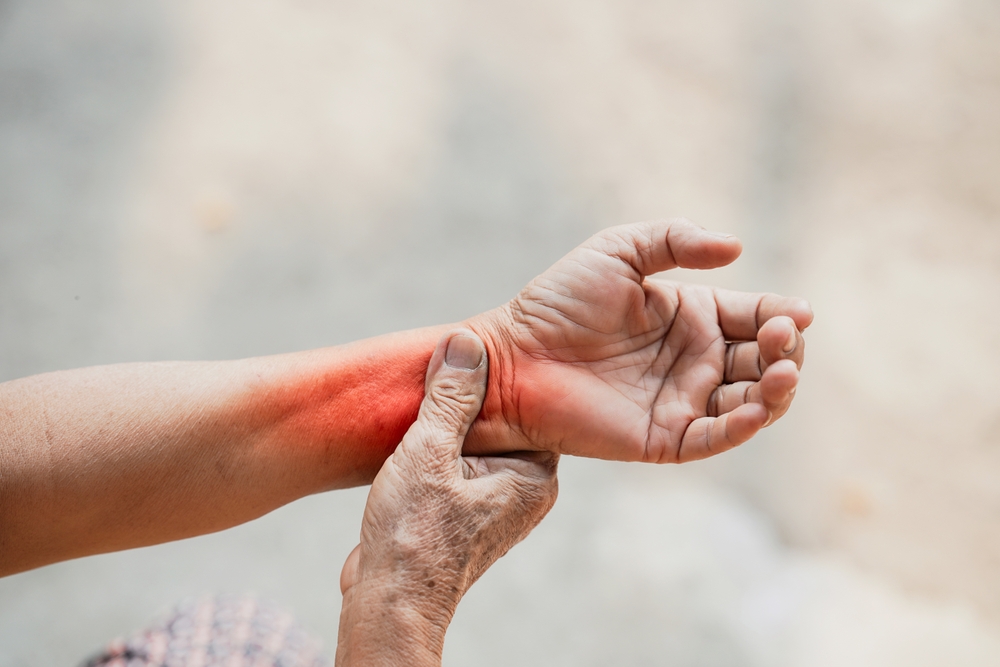
Managing Arthritis and Joint Pain: Practical Tips for a Better Quality of Life
Arthritis and joint pain can be life-changing, but effective management is within reach. In Conroe, TX, Dr. Trang Nguyen at Conroe Family Doctor specializes in helping patients regain mobility and comfort. This guide will explore various strategies to manage arthritis and joint pain effectively, focusing on practical treatments, exercises, and lifestyle adjustments that can improve your quality of life.
Understanding the Types of Arthritis
Not all arthritis is the same. There are over 100 different types, but the most common ones include osteoarthritis and rheumatoid arthritis.
- Osteoarthritis is a degenerative condition that wears down joint cartilage over time. It’s often linked to aging or joint injuries and usually affects knees, hips, and hands.
- Rheumatoid arthritis, on the other hand, is an autoimmune disorder where the body’s immune system mistakenly attacks the joints, causing inflammation, swelling, and pain.
By understanding the specific type of arthritis affecting you, Dr. Trang Nguyen can tailor a treatment plan that targets your symptoms and underlying causes.
Effective Medical Treatments for Arthritis
Medical intervention can significantly reduce arthritis symptoms. Some of the common treatments include:
- Medications: Anti-inflammatory medications, such as NSAIDs, can help reduce pain and swelling. For more severe cases, corticosteroids may be recommended to control inflammation. Disease-modifying antirheumatic drugs (DMARDs) are also used for autoimmune types like rheumatoid arthritis.
- Physical Therapy: Specialized exercises guided by a physical therapist can strengthen the muscles surrounding your joints, improve flexibility, and reduce pain. Techniques like ultrasound therapy and electrical stimulation might also be utilized.
- Injections: For cases where oral medications and physical therapy aren’t enough, options like corticosteroid or hyaluronic acid injections can provide relief directly at the source of pain.
- Surgery: Joint replacement or repair surgery is considered when other treatments fail to provide adequate relief, particularly for advanced osteoarthritis.
Natural Remedies and Supplements
While medical treatments are often necessary, many patients find relief by incorporating natural remedies:
- Omega-3 Fatty Acids: Found in fish oil, these have anti-inflammatory properties that can reduce joint stiffness and pain.
- Turmeric: This spice contains curcumin, an antioxidant known for its anti-inflammatory benefits.
- Glucosamine and Chondroitin: These supplements support joint health and may help in cartilage repair. Research on their effectiveness is mixed, but many patients report reduced symptoms.
Before starting any supplement, it’s crucial to consult with Dr. Trang Nguyen to ensure there are no potential interactions with your current medications.
Exercise: A Key Component of Arthritis Management
One might assume that exercise would worsen arthritis pain, but the opposite is true. Gentle, consistent movement can help alleviate stiffness and discomfort:
- Low-Impact Activities: Swimming, cycling, and walking are excellent for maintaining joint mobility without putting too much strain on the joints.
- Strength Training: Building muscle around affected joints helps to reduce strain. Focus on slow, controlled movements with light weights or resistance bands.
- Stretching: Regular stretching enhances flexibility and decreases stiffness. Include a daily stretching routine that targets the joints you want to protect.
- Balance and Stability: Exercises like Tai Chi or yoga can improve balance, reducing the risk of falls and further joint injuries.
Lifestyle Changes for Better Joint Health
Making lifestyle adjustments can also play a pivotal role in managing arthritis:
- Weight Management: Maintaining a healthy weight is essential, as extra pounds put additional strain on weight-bearing joints like the knees and hips. A balanced diet and regular exercise can help keep your weight in check.
- Healthy Diet: Focus on anti-inflammatory foods like leafy greens, berries, nuts, and whole grains. Avoid processed foods and sugars, which can exacerbate inflammation.
- Adequate Sleep: Sleep is when the body repairs itself. Prioritize quality sleep to help reduce inflammation and improve overall well-being.
- Stress Management: Chronic stress can worsen inflammation. Mindfulness techniques such as meditation, deep breathing, or hobbies you enjoy can lower stress levels.
The Role of Alternative Therapies
In Conroe, TX, some patients benefit from alternative therapies alongside traditional treatments:
- Acupuncture: This ancient Chinese practice can stimulate specific points in the body, potentially relieving pain and improving energy flow.
- Massage Therapy: Gentle massage can improve circulation and reduce muscle tension around affected joints.
- Heat and Cold Therapy: Applying heat can relax stiff joints, while cold packs can reduce inflammation and numb pain.
Dr. Trang Nguyen can help you decide if any of these therapies might be appropriate for your situation.
Keeping Track of Your Progress
Managing arthritis is a long-term commitment, and keeping track of your progress is crucial for adjusting treatments effectively. Here are some strategies:
- Pain Journal: Document daily pain levels, activities, and what helps or worsens your symptoms. This can help identify triggers and effective solutions.
- Regular Check-Ups: Schedule consistent appointments with Dr. Trang Nguyen to monitor your condition and make any necessary changes to your treatment plan.
- Setting Realistic Goals: Aim for achievable milestones, whether it’s walking a certain distance, reducing medication, or improving flexibility. Celebrate these victories to maintain motivation.
Understanding When to Seek Further Assistance
Sometimes, at-home management and regular treatments may not suffice. Knowing when to seek further help is crucial:
- Worsening Symptoms: If pain intensifies or mobility significantly decreases, it might be time to reevaluate your current treatment plan.
- Side Effects: Medication side effects should never be ignored. If you experience unusual symptoms, consult with your healthcare provider immediately.
- Daily Activities Become Difficult: When basic tasks like dressing, cooking, or walking are too painful, discuss potential solutions with Dr. Nguyen.
A Positive Path Forward
Managing arthritis and joint pain doesn’t mean giving up on an active life. By taking a comprehensive and personalized approach, it’s possible to maintain mobility and comfort. Whether through medical treatments, lifestyle changes, or a combination of both, finding a strategy that works for you is the key to long-term relief.
Sources:
- Hochberg, M. C., & Smolen, J. S. (2020). Rheumatoid Arthritis: A Pathophysiology and Treatment Overview. Journal of Clinical Medicine.
- Solomon, D. H., & Losina, E. (2018). Nonpharmacologic Management of Osteoarthritis. New England Journal of Medicine.
- Hunter, D. J., & Bierma-Zeinstra, S. (2019). Osteoarthritis. The Lancet.


